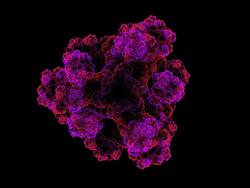Europe conquers the high seas
For centuries, Europe was a formidable player in maritime accomplishments that led to exploration and prosperity. Even today, the maritime industry in the EU, particularly shipbuilding and marine technology, is quite competitive on a global scale. To sustain this competitiveness, ongoing investment research and technological development (RTD) are needed. The European maritime industry can compete successfully in global markets by focusing on critical and dynamic technologies for products and production processes. In this vein, the EU-funded 'Starring a trans-regional network of regional research-driven marine clusters' (Starnetregio) project has increased the capacity of regional players in Croatia (Rijeka), Italy (Friuli Venezia Giulia) and Slovenia by investing in marine-industry RTD. The initiative specifically involved RTD in shipbuilding and port equipment, driven by regional research-intensive areas or 'clusters'. These clusters, which the project has successfully established, comprise universities, research centres, enterprises, and public regional authorities. To achieve its aims during its 30-month mandate, the project established a viable institutional cluster framework, mapping regional development plans and RTD key actors. It conducted a cross-regional analysis of development plans and RTD actors, enabling the emergence of a transnational collaborative research environment in the future. Knowledge transfer through mutual learning processes and mentoring activities among stakeholders was also undertaken, as was the development of a joint action plan for improving integration among stakeholders. The elaboration of the shared Transnational Research Agenda (TRA) was one of the most important results of the project, integrating collected data from the all areas of research. As a result, the TRA is continuously identifying and setting up concerted research strategies to address the sector's industrial needs. It helps define common RTD policies and programmes and sees them to fruition. The TRA summarises common interests and needs of the three regions, focusing on areas for further development and boosting shipbuilding as well as the leisure boat industry. Following the TRA, 6 of the 11 Starnetregio partners signed a framework agreement to ensure networking and cooperation among the regions and among stakeholders within each region. Along with this, a joint action plan has been outlined and is considered the ultimate project result. It represents a clear roadmap for measures and actions that will be developed and implemented by the Starnetregio partners after the project's end. These measures are set to go a long way in ensuring Europe's competitive edge in the maritime field.



